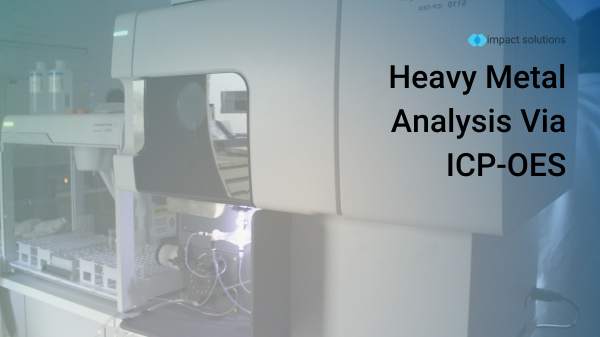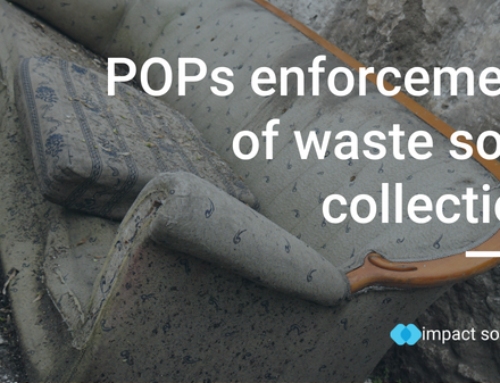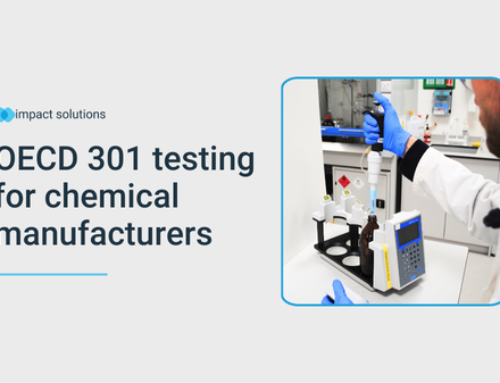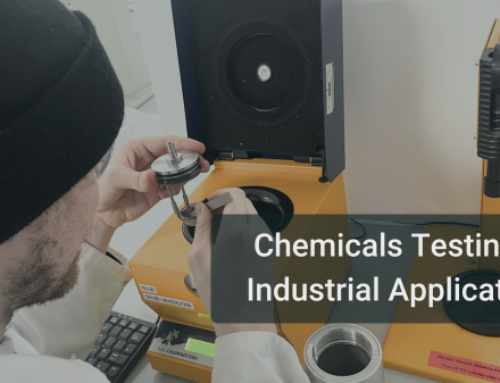ICP-OES General Overview
ICP-OES: A crucial Tool For Industries Across The World
Industries across the world are constantly seeking advanced technologies to improve their processes and ensure product quality. When it comes to elemental analysis, few technologies can match the versatility and accuracy of Inductively Coupled Plasma Optical Emission Spectroscopy (ICP-OES). It has found its place in numerous sectors ranging from manufacturing and environmental monitoring to pharmaceuticals and food safety. It is a powerhouse piece of equipment with vast capabilities.
Why is ICP-OES Useful for Heavy Metal Analysis?
One of the standout features of ICP-OES is its ability to detect a broad range of elements—from alkali metals like sodium and potassium to heavy metals such as lead, cadmium, and mercury. This versatility is essential for industries such as environmental monitoring, where water and soil samples often need to be tested for a diverse array of contaminants. Similarly, the automotive and aerospace industries rely on ICP-OES to ensure the metals used in components meet stringent performance specifications, including the identification of trace elements that might affect material properties like strength and corrosion resistance.
Unlike other techniques that may require separate instrumentation for each metal, ICP-OES can analyse multiple elements simultaneously, making it a highly efficient choice for laboratories and manufacturers dealing with complex samples containing a mix of metals.
ICP-OES Offers Excellent Sensitivity
When it comes to detecting trace metals in a wide array of samples, ICP-OES offers excellent sensitivity. The technique is capable of measuring elemental concentrations in the parts-per-billion (ppb) and parts-per-million (ppm) range, making it ideal for industries that require low detection limits.
Moreover, ICP-OES offers precision and reproducibility—critical qualities for ensuring consistency in manufacturing processes or meeting regulatory standards.
Minimal Sample Preparation
ICP-OES is highly efficient when it comes to sample preparation. Many techniques require labour-intensive and time-consuming procedures to prepare samples before analysis. However, ICP-OES often requires minimal sample preparation, particularly for solid samples like metals and alloys, which can be directly analysed after suitable digestion or dissolution. For liquid samples, such as industrial effluents or drinking water, minimal pretreatment is typically needed.
This ease of sample preparation reduces operational costs, it allows for higher throughput, and better productivity in manufacturing environments. For industries that operate under tight timelines, this efficiency can be a significant advantage.
Compliance with Regulatory Standards
Many industries are governed by stringent regulations to ensure product safety, environmental protection, and public health. ICP-OES is widely used in both government and commercial laboratories because it meets the regulatory requirements of global standards like those set by the EPA, FDA, ISO, and USP. Whether you’re testing drinking water for lead levels or conducting a routine inspection of food products, ICP-OES provides reliable data that can help companies stay compliant with legal and industry-specific guidelines.
ICP-OES Offers Cost-Effective Long-Term Solution
Although the initial investment in ICP-OES equipment can be substantial, the technology’s long-term cost-effectiveness cannot be overstated. The ability to analyse multiple elements simultaneously, coupled with minimal sample preparation and rapid analysis, ensures that the operational costs are low. Furthermore, since ICP-OES requires minimal maintenance and offers a high degree of automation, the total analysis cost remains competitive over time.
Ultimately, ICP-OES has become an indispensable tool for elemental analysis in diverse industries due to its high sensitivity, wide elemental coverage, and efficient sample analysis capabilities. From environmental protection to manufacturing, pharmaceuticals, and forensics, ICP-OES provides the accuracy and reliability needed to meet the ever-increasing demands of modern industries. As industries continue to evolve, ICP-OES will remain at the forefront of metal analysis, ensuring safety, quality, and innovation across the board.

Given the importance of this heavy metals analysis and the stronger focus on supporting the circular economy, Impact Solutions has invested almost quarter of a million pounds in expanding toxicity and other analytical tests. We have purchased a state-of-the-art ICP-OES unit from Agilent in order provide with quality and accredited test reports on heavy metal analysis.In addition to our latest ICP-OES equipment we also have the latest technology microwave digestion unit from Analytix to minimise sample preparation and keep the costs as low as possible.
Get In Touch To Find Out More
For any further information regarding our newly expanded analytical services please get in touch and our qualified chemists will come back to you with the right testing for your application.
Be sure to head to our Facebook, LinkedIn and Twitter to learn more about what we do!





